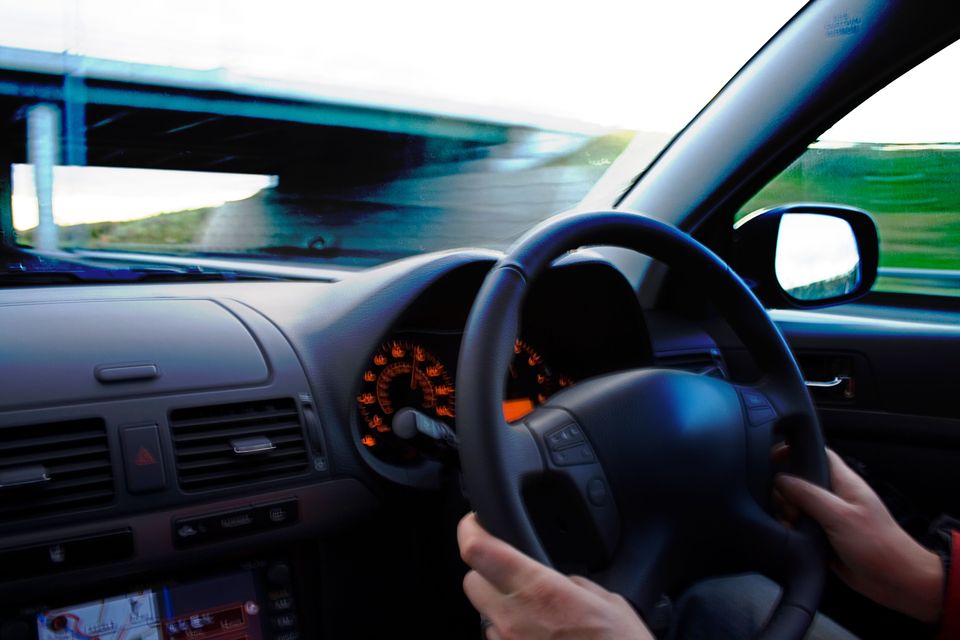Its annual conference, focusing on the theme of driver distraction, has heard that 70pc of drivers in a survey of 1,000 have admitted to using their phones while behind the wheel.
Nearly a third said they read messages or emails, and a quarter said they checked social media messages.
Even more, 27pc said they had written messages or emails while driving.
Stock image
The Road Safety Authority (RSA) has said driving that while using a mobile phone needs to be stigmatised instead of normalised if there is to be a reduction in road collisions.
“Mobile phone use while driving is just one of the contributing factors to fatal and serious crashes. Sadly there’s a stubborn cohort of people who continue to be a danger to themselves and others by engaging in the killer behaviours of speeding, drink or drug driving, using a mobile phone while driving, and not wearing a seatbelt. And in relation to mobile phone use, I think we should be moving towards the stigmatising of the use of mobile phones while driving, rather than accepting it or normalizing it,” RSA Chairperson Liz O’Donnell said.
“It’s a huge road safety challenge, and despite the increasing challenge it shouldn’t deter us as a society from our common goal, because more lives can be saved and more injuries can be prevented if we all continue to put our efforts into targeting these killer behaviours and working to change the behaviour of all road users for the better.”
Delegates heard from Dr Kiran Sarma, Forensic Psychologist Associate Professor at the School of Psychology at University of Galway, who outlined attitudes and addictive behaviour towards smartphone use, which indicated that the “fear of missing out” on messages, calls and notifications while driving is a significant motivation behind this dangerous behaviour.
The conference also heard that while many drivers do not intend to be distracted by their phones, and may have a desire to only use them for navigation using an online app, the stream of messages, emails, and notifications are a continuous distraction that some people cannot resist checking because of increased dependency on mobile devices in general.
Dr Sarma outlined how the RSA commissioned report on mobile phone use while driving set up focus groups with 32 young drivers aged 18-24 recruited through NCT centres, and completed interviews with six international road safety experts in the field to explore young driver mobile phone use in detail.
The report found that drivers deliberately use their phones, and this derives from believing they can handle the car safely while using the phone, and a perception that they won’t get caught, as well as a belief that others use their phones all the time and it is “normal”.
Unconscious processes derived from habit, such as the fear of missing out and smart phone addiction, were also factors.
“In each focus group we asked the participants what they think is the probability of being detected if they’re using their mobile phone. None of the drivers in the focus group had been detected, and they were quite clear that if nobody in the focus group has been detected, then the probability of detection is close to zero. This is important because we know in terms of behavioural change, that risk perception will be important,” Dr Sarma said.
“It seems to me that a coherent approach to targeting phone use, at the centre of an integrated strategy would be accepting that drivers would struggle to voluntarily abandon their phones in the vehicle, and that they do need an external motivating force to try and encourage the change in behaviour, and that is going to involve placing deterrents at the centre of a strategy around distracted driving.
“That is about having an increased probability of detection and significant quick sanctions. Clearly that can’t involve manual policing. It’s impossible.”
The use of roadside cameras in other countries to detect mobile phone use using AI reinforced by human double-checking was also highlighted.
In the Netherlands the fine for being caught driving while using a mobile device is now €429.
The use of technology to reduce distractions was also raised at the conference. There are ‘driving mode’ settings on mobile phones that can be activated so that incoming calls and messages are halted while the user is driving, and these settings do not affect the use of the phone as a navigation tool.




